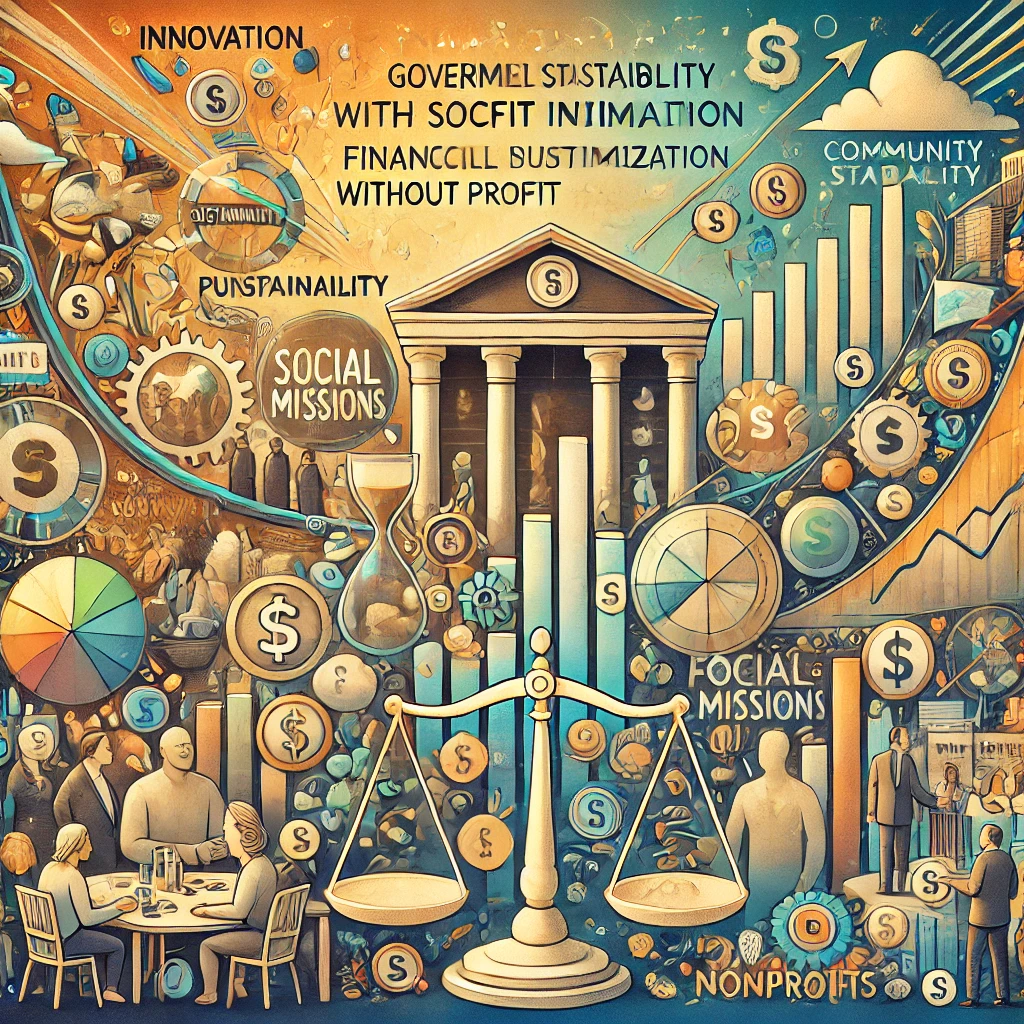
The traditional capitalist model, driven by profit-seeking enterprises, has undoubtedly generated wealth and innovation. However, this system has also exacerbated income inequality and social disparities. What if we explored a different model – an economy powered primarily by nonprofit organizations?
Addressing the Challenges of a Nonprofit-Focused Economy
- Capital Generation: While nonprofits don’t have shareholders, they can still generate revenue. Earned income through selling goods or services, grants, and donations could build sustainable models. Endowments, like those of universities, could be established to ensure long-term financial stability.
- Innovation: Nonprofits’ core mission is to solve social problems, so innovation is baked into their organizational DNA. Competitive grant funding, strategic partnerships, and a desire to create positive change could fuel significant advancements.
- Complex Needs: True, specific sectors require robust government support. Public-private partnerships between government and nonprofits could leverage the strengths of both entities. Government grants or loans could facilitate large-scale projects where needed.
Potential Benefits of a Nonprofit Economy
- Reduced Inequality: As profits wouldn’t be diverted to a select few, income distribution could be more equitable. The focus on social missions could help uplift marginalized communities.
- Mission-Driven Focus: Businesses wouldn’t be solely driven by maximizing profit but by delivering on social goals. This could prioritize issues like environmental sustainability and community well-being.
- Greater Transparency: Nonprofits are often subject to more significant transparency requirements than for-profit corporations. This could enhance public trust and accountability.
Is It Realistic?
A purely nonprofit-driven economy is likely an ideological goal. However, a hybrid model where nonprofits play a more prominent role could bring significant benefits. Government policies incentivizing nonprofit growth, supporting social enterprises, and fostering public-private partnerships could lay the groundwork for a more equitable and socially driven economy.
Call to Action
While this model requires more research and debate, let’s start a conversation. What are your thoughts? Can a more robust nonprofit sector help create a more just and sustainable society?